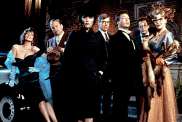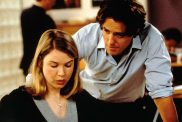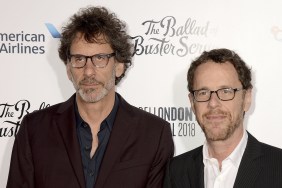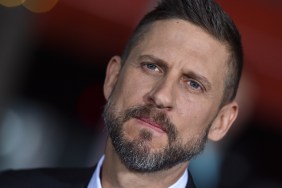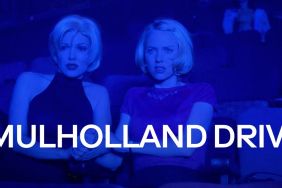This has been something I’ve been wanting to write for some time, but as we reach the end of the year and people start reflecting back on some of the year’s best–we’re shooting for next week with our own Top 25–we can almost guarantee that Nicolas Winding Refn’s Drive will be among many Top 10 lists. So why aren’t more prognosticators on board with the idea that this movie is worthy of a Best Picture nomination?
We first start hearing about the new movie from Refn, director of edgy fare like the “Pusher” trilogy and Tom Hardy’s breakout movie Bronson, this past May when Drive premiered at the Cannes Film Festival. Considering how many movies barely can get through the tough critics who attend Cannes, hearing good such things about a movie before it has a distributor is usually a good sign. After it was picked up by Bob Berney at FilmDistrict, it had its US premiere at the Los Angeles Film Festival where it received similar raves.
Some of you may remember Bob Berney from his involvement with movies like Patty Jenkins’ Monster at Newmarket or Guillermo del Toro’s Pan’s Labyrinth, which he got behind at Picturehouse. His short-lived Apparition wasn’t around long enough to make an impact, but it did release one of our favorite movies of 2010 with Nash Edgerton’s The Square. Sadly, Berney’s going to be leaving FilmDistrict soon, but Drive is a great example of his vision for finding strong films that actually change how we watch and talk about movies.
Granted, it took us two viewings to really get on board, because it has such a different tone from anything else out there–Fast Five this is not, as one woman found out–and having a movie that moves at such a unique past does take some adjustment. Watching the movie a second time really allows you to understand the genius of what Refn has done, playing in familiar territory of the crime noir story but approaching it in such an innovative way. Quiet and subdued one moment, and violent and explosive the next.
The story revolves around Ryan Gosling’s enigmatic stunt driver, a mostly silent and nameless individual who moonlights as a getaway driver, something we see in the opening sequence where we see him at work evading police as he drives through the Los Angeles streets. He then meets his neighbor Irene, played by Carey Mulligan, a single mother whose husband is soon released from jail, only to get strong-armed into committing a robbery with Gosling offering to drive him. Bryan Cranston is great as Shannon, the man who gets Gosling his jobs, and Albert Brooks and Ron Perlman play the criminals who he falls foul of when a job goes wrong. The interaction between these actors is dark and gritty and comic, all at the same time.
Despite all the rave reviews–it’s currently at 93% Fresh on Rotten Tomatoes—Drive only grossed $35 million, which isn’t much by today’s studio release standards, but quite decent for a movie that cost a reported $15 million.
It takes a real vision to create a film like this, so why shouldn’t the Oscars be used to honor originality and new talent? Frankly, we think Refn’s work as a director is on par with most of the others being mentioned, and we’ve spoken to so many actors and filmmakers this year who cite Drive as the best thing they’ve seen this year. It’s a really powerful piece, one that’s driven by the choice in music and Cliff Martinez’s ambient score and the way cinematographer Newton Thomas Sigel captures Los Angeles and finds brilliant ways of shooting some of the memorable scenes.
So if you’re a member of the Academy or one of the other voting groups, as you watch your screener of Drive to check out the fantastic already-nominated performance by Albert Brooks as the main baddie–oh, and we’ll have a great interview with Brooks soon, too–you should try and appreciate what a great overall film Drive is and why its innovation is worthy of being honored alongside movies like The Artist, The Descendants et al.

